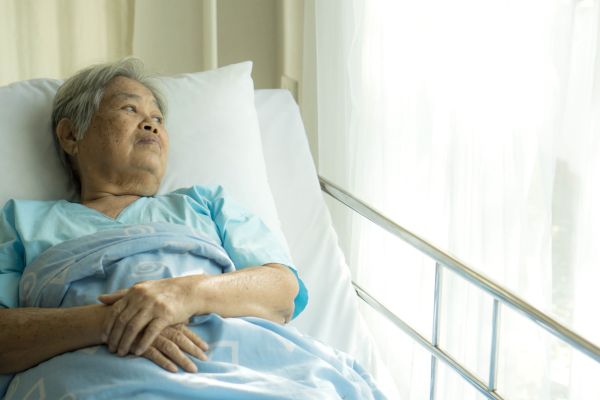
- Details
- By Native News Online Staff
Ovarian cancer is estimated to affect just under 20,000 women this year alone. According to the American Public Health Association, American Indian/ Alaska Native (AI/AN) and White women had similar ovarian and uterine cancer death rates.
Regional differences in the incidence of mortality of ovarian cancer among AI/AN women in the U.S. were significant, though.
Despite regional differences, AI/ANs overall have higher rates of cancers and other conditions, mainly because AI/ANs are getting screened too late, if at all. Although many AI/AN people have access to the Indian Health Service (IHS), the IHS is chronically underfunded.
Ovarian cancer happens when there are changes in genetic material (DNA). Often, the exact cause of these genetic changes are unknown.
Since the signs and symptoms of ovarian cancer can be easy to miss, and no diagnostic test exists for ovarian cancer, awareness of the disease is extremely important for early detection and intervention.
Signs and symptoms include:
- Bloating
- Trouble eating or feeling full quickly
- Pelvic/abdominal pain
- Urinary frequency
- Fatigue
- Menstrual changes
- Back pain
- Upset stomach, heartburn, or constipation
Certain factors increase the risk of developing ovarian cancer. These risk factors include:
- Being a woman
- Overweight or obese
- Childbirth later in life or never having a full-term pregnancy
- Hormone replacement therapy
- A family history of ovarian cancer, breast cancer or colorectal cancer
- A personal history of breast cancer
- An inherited genetic mutation (BRCA1, BRCA2)
- A family cancer syndrome (Lynch syndrome, Peutz-Jeghers syndrome, MUTYH-associated polyposis)
- Fertility treatment
- Smoking
Your healthcare provider may suggest that you have genetic testing to look for the gene changes that raise the risk for ovarian cancer. Knowing whether or not you have the gene may help your provider decide on your treatment plan.
If you are 63 years of age or older, you should talk to your healthcare provider or call your local Indian Health Service Clinic.
More Stories Like This
‘A good stew is a story’ Blackfeet buffalo rancher shares Three Sisters Buffalo Stew recipeNational Indian Health Board Urges Congress to Extend Enhanced Premium Tax Credits
$1.25 Million Grant Gives Hope to Tolowa Dee-ni' Nation Amid Housing Crisis
HHS Repeals Nursing Home Staffing Requirements, Citing Relief for Tribal Facilities
Native Americans Face Second-Highest Gun Death Rate in U.S., New Study Shows


